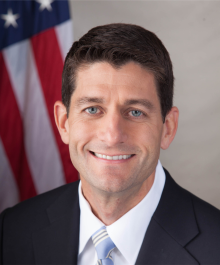“Obamacare is done.”
That was the glum prediction late Tuesday night from Democratic political consultant James Carville, longtime ally of Hillary Clinton, as he noted the electoral math propelling Republican Donald Trump to victory in the presidential contest.

Repealing the Affordable Care Act – or making severe changes to it – is expected to be on the front burner in Washington in January. Opposition to the 2010 law has united Republicans for years, and the party retained control of Congress on Tuesday as well as capturing the White House.
President-elect Trump, though he has not always seen eye to eye with congressional Republicans, has been on the same page with them in blasting the ACA. He has repeatedly vowed to repeal it.
“Obamacare is a disaster. You know it. We all know it,” the New York businessman said last month on the campaign trail. “We have to repeal it and replace it with something absolutely much less expensive.”
But under a repeal, what would happen to the 20 million Americans, including hundreds of thousands of Georgians, who gained coverage under the ACA? The national uninsured rate hit an all-time low this year, powered by the full implementation of the ACA.
“Any significant changes to the ACA will reduce the number of people with coverage,’’ said Bill Custer, a health insurance expert at Georgia State University.
Overall, what does the Trump victory mean for Georgia health care?
It’s hard to say with any certainty. But health care experts suggest the effort to expand Georgia’s Medicaid program now faces steeper odds than ever.

Georgia was one of 19 states not to expand its Medicaid program under the ACA, but recently some Republicans had warmed to the idea, and the Georgia Chamber of Commerce was promoting some plans to expand coverage.
And beyond the ACA, Trump and other Republicans – including Gov. Nathan Deal – have stated their preference for switching to a block grant program for Medicaid.
Essentially, that would cap federal contributions to the states’ Medicaid programs and give state leaders wide freedom to set the eligibility rules, benefits and structure. Medicaid and PeachCare for Kids cover more than 2 million Georgians, most of them children.
Democrats have fiercely opposed block grants, voicing concerns that such a step would eventually lead to funding cuts, reduce payments to medical providers, and leave many low-income people without health care, Modern Healthcare reported.
Under a Trump presidency, the health care system will undoubtedly undergo a huge change, experts say.
“No matter who won the election, there was going to be major disruption,’’ said Jimmy Lewis, CEO of HomeTown Health, an association of rural hospitals in Georgia. Clinton and other Democrats had indicated that the ACA would need revision, though they defended it as essential.
A Medicaid block grant, Lewis said, can work ‘’if configured properly.’’ But there’s also potential for disaster if it’s not structured the right way, Lewis added.
Repeal will be priority on Capitol Hill
“I would expect the very first thing a Republican Congress would do would be to repeal Obamacare,” said U.S. Rep. Tom Cole (R-Okla.) in an interview with Reuters on Monday.

But repeal won’t be an easy proposition. Democrats will still have enough power in the Senate, through a filibuster, to block the 60 votes needed for a full repeal.
“It’s a challenge for a Trump presidency,” Jack Hoadley, a research professor at Georgetown University’s Health Policy Institute, told NPR. “To get a true ‘repeal and replace’ through [Congress], he needs 60 votes in the Senate.”
Republicans, though, could use fast-track budget authority to make major changes to the law, Kaiser Health News noted.
Custer of Georgia State, however, said a wholesale repeal would not only strip 20 million people of coverage, but it would also remove the ban on insurers discriminating against people with pre-existing health conditions.
That ban, instituted by the ACA, extends over the whole health care insurance system, not just the state exchanges that help consumers find health coverage. The protection for people with pre-existing conditions has helped millions of people, Custer noted.

If Republicans want to keep the pre-existing condition provision, they would have to create new financial incentives for health insurers to cover such people, Custer added.
Repeal also would kill the health insurance exchanges – which have been criticized for high premium increases for 2017 – as well as end subsidies that help exchange users afford coverage. And it would end the current mandate for individuals and employers to have coverage, a requirement long criticized by Republicans.
Major changes to the ACA could push Georgia’s uninsured rate back above 20 percent, from the 13.9 percent mark currently, Custer said.
With fewer people covered, Georgia hospitals that are already financially vulnerable would have further pressure on them, Custer added. Many “would have to be funded in some way or go out of business.’’ He said states that have already expanded Medicaid could face a major hit to their budgets under repeal of the law.
America’s Health Insurance Plans, or AHIP, a trade association that represents the health insurance industry, said late Tuesday that it would work with any new administration on these issues.
A supporter of the ACA, Cindy Zeldin of Georgians for a Healthy Future, said Wednesday that “we are entering an uncertain time for health care, and at the forefront of our minds are the millions of Americans whose health insurance and access to basic care hang in the balance.”

“It’s too soon to know precisely what policy changes will occur and what their impact will be, but advocacy at both the state and federal levels on behalf of Georgians who need access to quality, affordable health care has never been more important.”
Ideas from the president-elect
Trump has proposed a series of measures that he says will allow people to buy affordable health insurance policies outside the Obamacare exchanges, NPR noted.
Those include promoting tax-free health savings accounts that might help individuals save money to pay for medical costs, and allowing people to deduct the cost of their premiums on their personal income tax returns.

Trump has said he also wants to allow insurers to sell policies across state lines to boost competition.
Trump could alter the Obamacare exchanges to promote high-deductible health plans and health savings accounts to get a result similar to what he’s looking for, NPR reported.
Modern Healthcare reported that with Trump in the White House, House Speaker Paul Ryan (R-Wis.) and congressional Republicans would press hard to transform Medicare into a so-called premium support program, under which the government makes fixed per capita contributions and beneficiaries use those payments to get their care from either traditional Medicare or private plans.
A move away from defined benefits would potentially expose seniors to higher out-of-pocket costs, Modern Healthcare reported. The GOP platform includes that proposal, even though Trump repeatedly promised in the primaries to leave Medicare unchanged.
Even if Trump fails to repeal the ACA, he could easily destroy it from within by refusing to fund it through the budget process, Austin Frakt, a health economist who runs the blog The Incidental Economist, told NPR.
“The only thing stopping that is, it’s a big deal to throw millions of people off insurance without offering something in return,” Frakt said.
Meanwhile, the effort to expand Medicaid in Georgia appears stalled.
The Georgia Budget and Policy Institute’s executive director, Taifa Butler, told GHN that “as the dust settles after the presidential election, it certainly appears the path toward closing Georgia’s ‘coverage gap’ through Medicaid expansion is uncertain.”

“Still, the fact remains that hundreds of thousands of uninsured Georgians don’t have access to a doctor and financially struggling hospitals are closing across the state,” she said. “These challenges will persist whether the Affordable Care Act is still the vehicle to address them or not.”
The Georgia Chamber of Commerce, which has promoted expanding coverage in the state, said through a spokesman that the goal of its health care access task force remains the same – to “find a solution that extends health coverage to more Georgians and undergirds our health care safety net and rural hospitals.’’
“The task force isn’t wedded to any particular federal policy; we’re simply committed to addressing a serious problem, ” said Brian Robinson, a spokesman for the Chamber. “If there are changes to federal law, it could perhaps allow for even more flexibility and cost-saving reforms. Whatever happens, we want to ensure Georgia is ready with a plan that is sustainable and fiscally responsible – and good for our health care system.”

